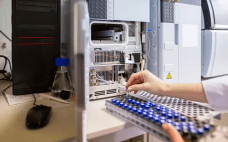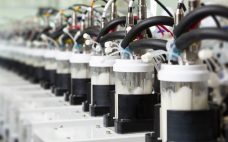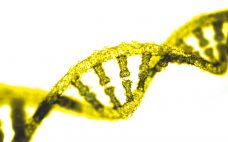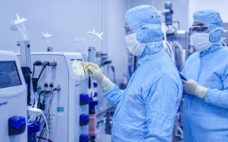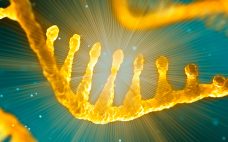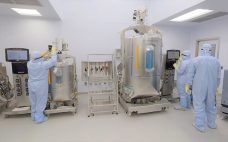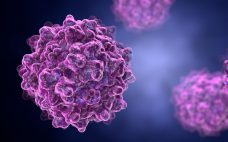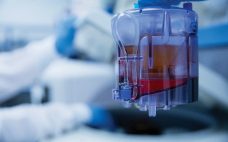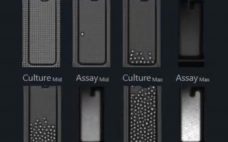This webcast features: Andrew Hanneman, Scientific Advisor, Charles River Laboratories One of the major challenges to developing successful biopharmaceutical products is understanding and characterizing potential impurities. Finding the source and magnitude of these impurities allows us to minimize and remove them during the manufacturing process to create a safe and effective drug. Development also needs to include supporting stability and forced degradation studies to ensure long-term safety and efficacy. Some impurities, such as protein degradants, host cell proteins, and various…
Webinars
New Data: A Better Way to Run CHO Cell Culture Experiments
This webcast features: Deborah Pascoe, PhD, Vice President of Operations, Culture Biosciences The bench-scale bioreactor has been the workhorse of Chinese hamster ovary (CHO) cell culture process development for decades. However, running benchtop bioreactors requires significant resources, infrastructure, and staffing. Tubing assembly, sterilization, calibration, and other setup activities can take hours to days. Tear down, cleaning, and deactivation are similarly burdensome. There are potentially large associated costs to prepare or purchase media, carry seed trains, and maintain facilities. Most critically,…
Integrated mRNA Production Process from E. coli to Highly Purified mRNA
This webcast features: AleÅ¡ Å trancar, Managing Director, BIA Separations, a Sartorius Company In vitro transcription (IVT), the enzymatic process used for the production of mRNA vaccines, differentiates itself from biological fermentation processes by the need for linearized plasmid DNA. The linear isoform is produced with restriction enzymes from open-circular and supercoiled plasmid DNA. Employing a traditional pDNA manufacturing process, which removes linear and open-circular isoforms, will reduce production yield. However, when plasmid DNA and mRNA are treated as a single…
Lentiviral Vector Platform Generation: Increase Titer and Yield with Greater Predictability
This webcast features: Xin Xin, Group Leader, Small-Scale Upstream Process Development, and Senthil Kumar Kuppuswamy, Associate Principal Scientist, Downstream Process Development, WuXi Advanced Therapies The field of cell and gene therapies has expanded rapidly in the past several years. Lentiviral vectors have been in great demand as gene carriers in this field, especially for ex vivo gene therapies. However, large-scale lentiviral vector production still remains a significant challenge. WuXi Advanced Therapies has worked with Lentivirus since 2015 and it launched…
Improving and Intensifying Vaccine Purification By Implementing Affinity Chromatography
This webcast features: Zoltan Gulyas, Field Applications Specialist, Thermo Fisher Scientific Vaccines are well-established tools in the fight to eradicate infectious diseases. Over the past few decades, vaccine production has advanced significantly, largely by the introduction of new molecule modalities. However, these new types of vaccine candidates often require multiple chromatographic steps to obtain the desired level of purity. Developing an efficient purification process using the classical surface chemistries such as ion exchange and hydrophobic interaction requires significant amounts of…
AAV Suspension Platform Generations: Continuous Improvement Leading to Increased Viral Vector Titer and Yield
This webcast features: Yiyu Dong, Head of Cell Line Development, and David Barnard, Senior Scientist, Process and Technology Development, WuXi Advanced Therapies The field of gene therapy has experienced significant growth in recent years. Adenoassociated virus (AAV)–mediated therapies account for ~70% of the gene therapy market. However, the manufacturing capacity for AAV vectors remains a critical bottleneck. WuXi Advanced Therapies launched a world-class AAV suspension platform early 2020. In this webinar, we will reveal the improvements that increased viral vector…
Exploring New and Improved Analytical Methods for Traditional and Unique Modalities
This webcast features: Jason Sterling, Principal Scientist and Project Director, Analytical and Formulation Resources, and John Rockwell, Group Leader, Catalent Pharma Solutions Biophysical characterization is critical to understand the make-up and behaviors of biologic therapies and vaccines both early in development and throughout the manufacturing scale-up process. As biologics become more complex in structure, and as scientists improve their understanding of the effects of structure on stability, efficacy, safety, etc., there is a need to develop new and improved analytical…
Analytical Ultracentrifugation for Characterization of AAV Gene Delivery Vectors
This webcast features: Christopher Sucato, PhD, Associate Director, Biophysical Characterization, and Cynthia Swanson, Associate Research Scientist, Charles River Laboratories Analytical ultracentrifugation (AUC) has been a staple in the biopharmaceutical industry to analyze aggregation and higher-order structure in protein drug products. With the recent boom in cell and gene therapies using gene-delivery vectors, new avenues for AUC-based characterization and QC lot release methodologies are now available. View this webinar for a discussion on the new parameters of AUC analysis and how…
Opto-Sensor Guided Centrifugation for Efficient, Reagent-Free Cell Separation in a Semi-Automated Closed System
This webcast features: Ben Josey, PhD, Field Applications Scientist, Corning Life Sciences The potential for cell-based immunotherapies is moving fast. But some of the processes to develop and manufacture these clinical-grade therapies can slow you down. This Ask the Expert webinar will cover ways you can reduce the manual steps involved in traditional cell processing. Attend to learn more about: Tips to streamline cell separation and formulation of specific cell populations for cell and gene therapy development and manufacturing Ways…
De-Risking INDs with Unrivaled Monoclonality Assurance in Cell Line Development
This webcast features: Tanner Nevill, Vice President, Program Management, Berkeley Lights Monoclonality assurance is a central regulatory requirement for all cell lines manufacturing biologic therapies. Imaging is currently the gold standard for confirming that production cell lines originate from a single cell. However, conventional well plate imaging is very labor-intensive and prone to error due to the presence of “ghost” cells and debris that are difficult to differentiate from cells. Opto™ cell line development (CLD) on the Berkeley Lights Beacon® system provides…

